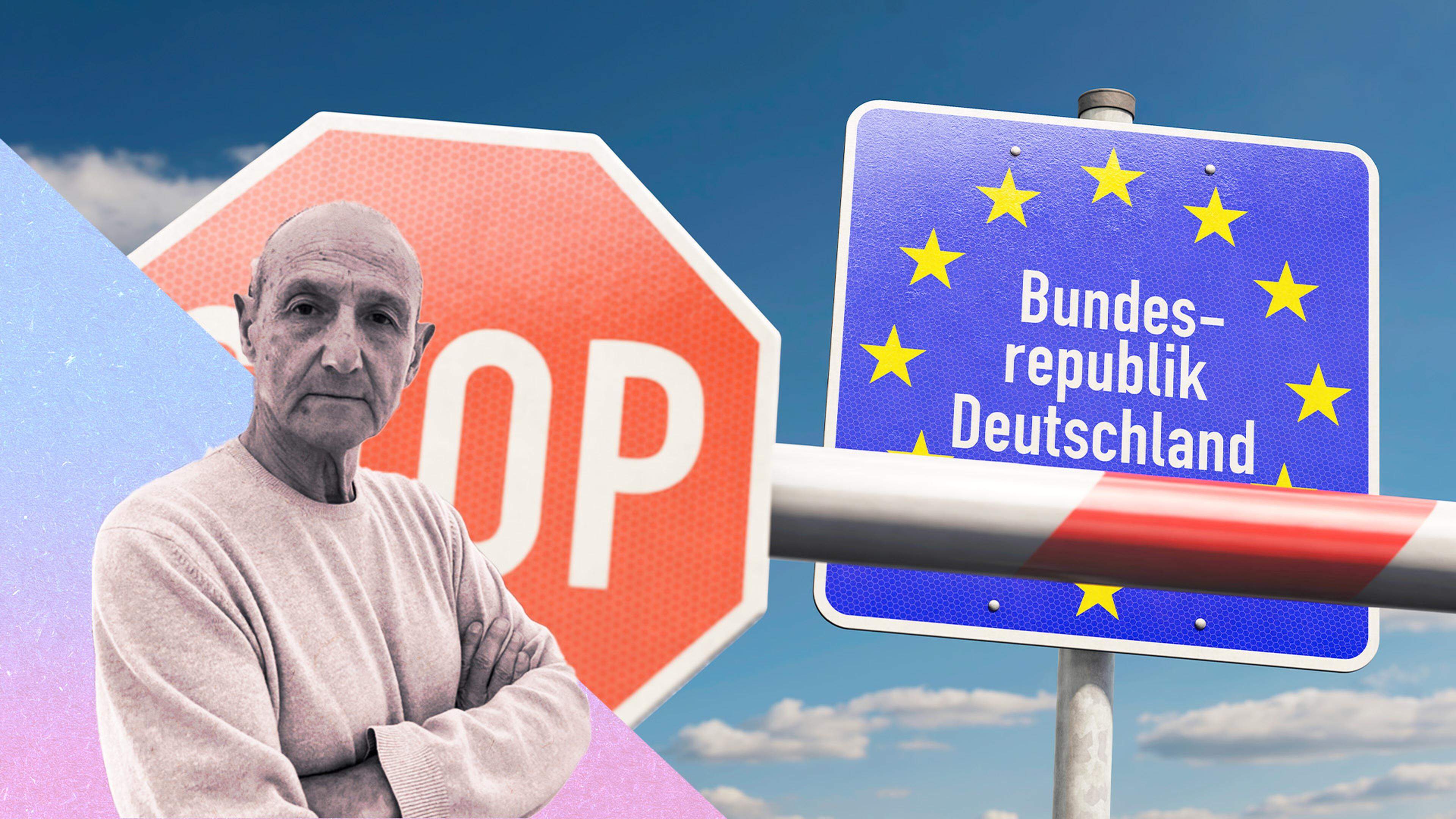Why the fundamental right « free passenger transport » is in acute danger

The author is a publicist with a focus on Europe and Luxembourg Society. He is also a former special advisor in the Ministry of Foreign Affairs.
Guest contributions reflect the respective opinion of their authors, not those of the editorial team. They are not part of regular reporting and theme planning of the « Luxemburger Word ».
Free passenger transport was a central goal of the EEC founders 70 years ago. Reality was initially in six states in EG times 40 years ago by signing the Schengen Agreement in 1985. This was then integrated into the EU contracts in 1997.
Free passenger traffic was first created for the people living in the Schengen countries, EU citizens and citizens from third countries who have a valid constant residence permit. So he was by no means an instrument of migration policy.
Why Schengen is celebrated despite border controls
The fact that tourists and business people from third countries are allowed to move freely in the Schengen area for three months if they have a visa is a later rule from the time when the borders opened in Europe with the end of the Cold War in 1989/1990 and the signs were globally on trust and hope for a new world order.
In 2025, however, the global conditions in the EU and the Schengen area have changed radically: more and more warlike arguments to the limits of the EU lead to refugee flows and irregular migration. Nationalist, xenophobic and authoritarian rights to extremely right -wing parties slaughter this development and are increasingly establishing themselves in the member states. The democratic governments lose their authority.
Guest author Victor Weitzel explains how a reform of the Schengen contracts could avoid border controls in the future. Photo: Florin Balaban
What is « irregular migration »?
“Irregular migration” first means the illegal border crossings of citizens from third countries at the outer borders, which are increasingly protected. This has nothing to do with Schengen.
The irregular migration, although this is legally false, also includes a flat rate that also applies to an asylum application in an EU state (one million in 2024, eleven percent less than in the previous year), but not in the country in which they applied for asylum. Too many go on, especially to Germany or Great Britain. This also has nothing to do with Schengen.
But then there are the legal border crossings of citizens from third countries with or without a visa obligation with a temporary, valid Schengen visa, which is issued for the former in the country of origin or for the latter, that does not leave the EU after the visa period has passed. In 2024 around the eleven million tourist gengers were issued. In Spain alone, 700,000 Latin Americans live, who have not returned after three months and hope to be legalized after a few years.
Too many go on, especially to Germany or Great Britain. This also has nothing to do with Schengen.
Although the EU Commission has managed to adopt a migration pact in 2024 and the irregular migration is currently declining, the political pressure remains. It is barely a month without new measures being announced.
In our neighboring country Germany, the traffic light coalition in 2024 has given in to the permanent fire of the right-wing extremist AfD and in fact introduced constant border controls at the Schengen internal borders, which massively disrupt the goods, commuter and small border traffic. The new black and red coalition wants to reinforce it. A panicked and very authoritarian measure, because it is drastically restricted by the fundamental right of free passenger transport of the legal residents of the EU in the EU contracts.
The defense of Europe is the personal responsibility of the EU
Suggestions for a Schengen reform without controls at the internal borders
It’s time to rethink. The legal residents of the Schengen area are not the cause of irregular immigration. Punishing them with border controls is absurd. They are the first mandate of the democratic governments to protect the rights and security with confident authority.
Since several Schengen countries prefer to determine themselves who goes to and out of third countries, the abolition of the Schengen visa for tourists should be considered. If you come from a third country, you have to apply for a visa for every single country that you want to visit.
The German border controls have been burdening the Luxembourg-German relationships since autumn 2024. Photo: Harald Tittel/dpa
An unauthorized stay in a Schengenland should no longer be regarded as an administrative offense, but as an offense. This should lead to immediate custody and designation at your own expense in the Schengenland, for which there is a visa. If this is not possible, the expulsion to the home country could take place. If this is also not possible, the person would be in custody until a solution is hit with the home country. Letting people without or without valid papers circulate in the EU is neither acceptable in terms of security and under the new geopolitical conditions.
Accommodation structures would have to take on new obligations in such a drastic reform. If a guest does not have the necessary papers, then the accommodation structure must have an obligation to report. Follow -up structures without physical presence and paper control can then no longer exist.
Restrict free movement before the end of the asylum procedure
Asylum law may not be touched in the fight against irregular migration. It is derived from the multilateral Geneva convention and part of the EU contracts. It is based on completely different rules that have now also been made in the EU, for example if people have already been drawn by safe third countries before their application in the EU. In view of the conflicts that smell at their limits, Europeans should not forget that they may also have to claim it themselves.
This reform would be a ‘back to the roots’ because Schengen is first intended for the legally established persons in the EU and the Schengen area.
However, if we want to preserve Schengen, people who apply for asylum should no longer be allowed to circulate freely in the future up to one, if possible fast, decision and to a humanitarian level.
People who abuse the right of residence or asylum in one way or another should come into custody until their case can be clarified by their cooperation and their expulsion can be carried out. In this respect, they would be responsible for the duration of their custody in structures that would be clearly separated from those for asylum applicants who adhere to the rules. A outsourcing of such procedures to third countries must be excluded for human rights reasons.
Authority instead of authoritarianism
Such a reform would have several effects. The freedoms of the legal residents of the Schengen area would not be restricted, as is now the case because of the violations of people from third countries. The states have significant sovereign skills in terms of residence rights.
Luxembourg must complain against border controls before the ECJ
The number of people circulating in the EU without residence status would go back, and thus also pass the criminal and labor law. It could also lead to the decline in various forms of mass tourism, which, among other things, contributes to the destruction of the social structure in many areas of Europe through virtual accommodation models.
This reform would be a « back to the roots » because Schengen is first intended for the legally established persons in the EU and the Schengen area. It is not without risks because it could be misused by authoritarian governments. It is about adapting the Schengen rules and maintaining the humanitarian heritage in Europe. The democratic governments of Europe should show their authority when it comes to migration, but not expire to authoritarianism. That would be the better way to take the irregular migration and the nationalist and undemocratic forces in Europe out of the sails and weld Europe together.








